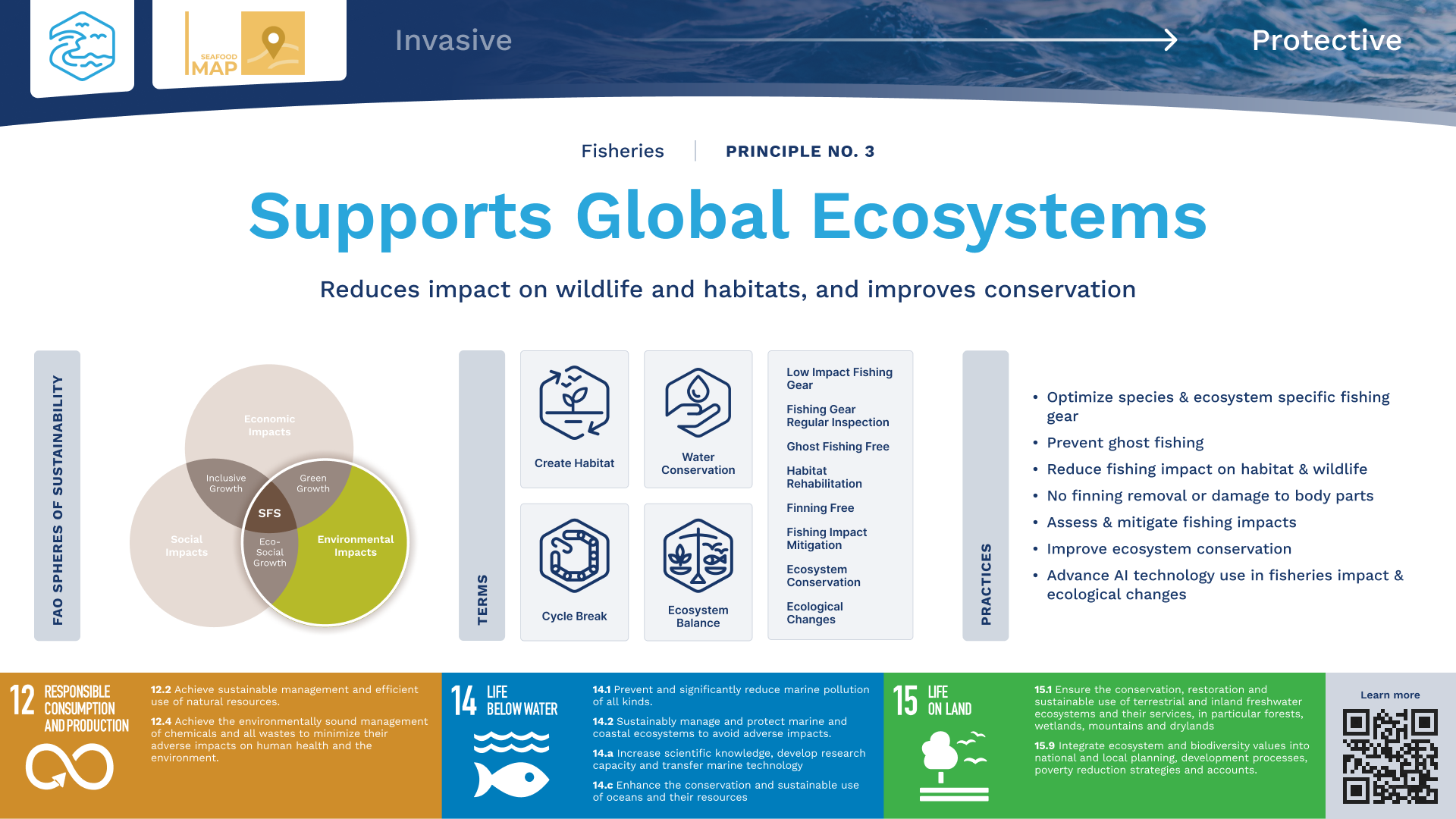Fisheries – Principle 3 | Seafood MAP
According to recent FAO reports, seafood makes up almost 50% of all protein demand eaten globally. Seafood is a key protein source for the future and is scaling rapidly, its growth posing risk of disrupting ecosystem balance. Production should be maintained with the surrounding wildlife and habitat in mind and mitigate impact on the natural environment. Capture fisheries must be well-managed and regulated to allow for optimal and sustainable production.
Fishers should implement best fishing practices that consider populations of marine life and maintain ecosystem balance. Maintaining ecosystem balance includes optimizing fishing gear, preventing ghost fishing and improving conservation. Fishing operations should contribute to assessing and mitigating fishing impacts for effective fisheries management.
New England Aquarium
Key Topics Explained
What is the connection between fisheries and ocean health?
Responsible fisheries are an important part of keeping our oceans and planet healthy. Our interest is in ensuring responsible, balanced use of healthy oceans by thriving coastal communities. One way to do this is to recognize and reward sectors or individuals in the marketplace that are:
This can further encourage and inspire others to show similar responsibility and innovative forward-thinking. Whether happening on a large, industrial-scale or on a small scale, it is important to provide all of these proactive players with the opportunity for recognition and access to markets.

N/A